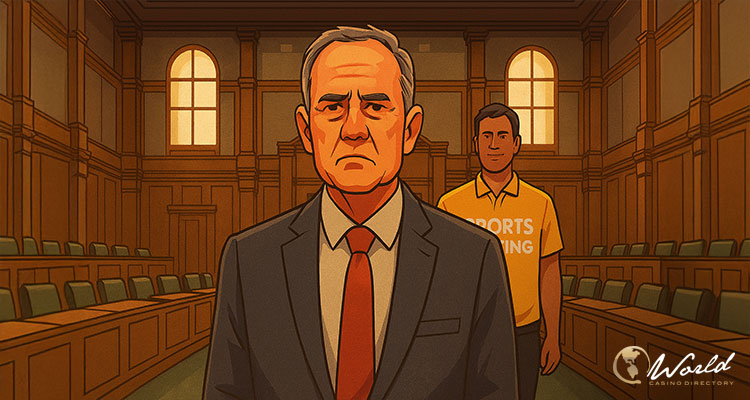The connection between the gambling industry and Australia’s political sphere has come under scrutiny following allegations about Responsible Wagering Australia’s (RWA) involvement with the Australian Parliament Sports Club. Critics, including crossbench politicians and transparency advocates, argue that this sponsorship allows the industry to access lawmakers and entrench gambling’s presence in Australian sports culture.
Growing Concerns Over Gambling Lobby’s Political Influence
RWA, a peak body representing major bookmakers like Sportsbet, Bet365, and PointsBet, has faced backlash for its corporate membership of the sports club, which offers access to parliamentarians during informal events. Membership to the exclusive club begins at AU$2,500 (US$1,660) and provides corporate sponsors with opportunities to network with more than 200 members of Parliament. The club is chaired by Prime Minister Anthony Albanese, but its critics argue that the sponsorship has created a problematic overlap between the gambling industry and Australian politics.
Independent MP Kate Chaney, who has been vocal in supporting a ban on gambling advertisements in sports, sees the club’s sponsorship as a subtle attempt to normalize gambling in political spaces. Chaney, who was part of a parliamentary inquiry advocating for the ban, emphasized that the government should take steps to end such associations. “The industry’s influence has become normalized, with no one batting an eyelid at lobbyists turning up at friendly parliamentary sports events,” Chaney remarked, calling for the removal of RWA’s membership.
Despite the criticism, RWA’s Chief Executive, Kai Cantwell, has denied any intent to lobby through the Australian Parliament Sports Club. In response to the allegations, Cantwell asserted that the organization engages with regulatory processes and harm reduction efforts through official channels, not during social or sporting events. “RWA’s work on regulation and harm reduction happens through the proper parliamentary and regulatory processes, not on the sporting field,” he stated, maintaining that the club’s involvement is purely for socializing and exercise.
RWA’s participation in these informal gatherings is framed as a chance to interact with parliamentarians in a relaxed environment. Cantwell explained, “Like other industries, we occasionally take part simply to enjoy exercise and socializing – something important for all Australians, particularly in high-pressure roles.”
The sports club’s CEO, Andy Turnbull, also dismissed claims that the venue is used to lobby politicians. He emphasized that there is an unwritten rule that prohibits discussing business on the sports field. “It’s the only time the parliamentarians get any time to relax and not do business, and I work very hard to ensure this is the case,” Turnbull explained.
The Backlash Against the Gambling Industry’s Social Associations
The controversy surrounding RWA’s membership intensified after the group’s participation in an event hosted by the club, where it was linked to the suicide prevention initiative Running for Resilience. The event, which aimed to support mental health and combat suicide, was criticized when RWA shared on LinkedIn that it had been involved in the initiative. However, Running for Resilience later stated that they were unaware of RWA’s involvement and were dismayed by the association. The group’s CEO, Ben Alexander, responded, highlighting that the event was focused on preventing addiction and unhealthy coping mechanisms, not on aligning with the gambling industry.
As reported by The Guardian, Senator David Pocock, another vocal critic of RWA’s influence, condemned the now-deleted LinkedIn post, calling the attempt to associate the gambling industry with suicide prevention “shameless.” Pocock remarked, “It’s pretty shameless given we know that gambling addiction can lead to suicide and they are there trying to associate themselves with a group that’s trying to end suicide in the ACT.”
Growing Concerns Over Gambling Ads in Australian Sports
The debate over gambling’s role in Australian sports is part of a larger conversation about the normalization of gambling in the country. Recent calls from figures like Australian cricketer Usman Khawaja have brought attention to the issue of underage betting, with Khawaja arguing that the presence of gambling ads in sports broadcasts has led to younger generations becoming increasingly exposed to betting. “There are 16-year-olds with gambling accounts, and they cannot watch the game without putting a bet on,” Khawaja lamented.
The influence of gambling companies extends beyond their involvement in informal parliamentary events. Reports from the Alliance for Gambling Reform revealed that at least 19 politicians had accepted hospitality tickets from gambling companies for major sporting events, including the Melbourne Cup and Australian Open. Tim Costello, the Alliance’s chief advocate, warned that these practices show how the gambling industry is leveraging its financial power to sway political decisions and maintain its foothold in the sports sector.
While RWA and other stakeholders defend the current system as one of legitimate social engagement, many in the political and advocacy communities believe that more needs to be done to mitigate the influence of the gambling industry. Critics argue that the prevalence of gambling advertising and its ties to sports sponsorships are undermining efforts to protect vulnerable populations, including young people who may be drawn into betting through exposure to ads and corporate sponsorships.


